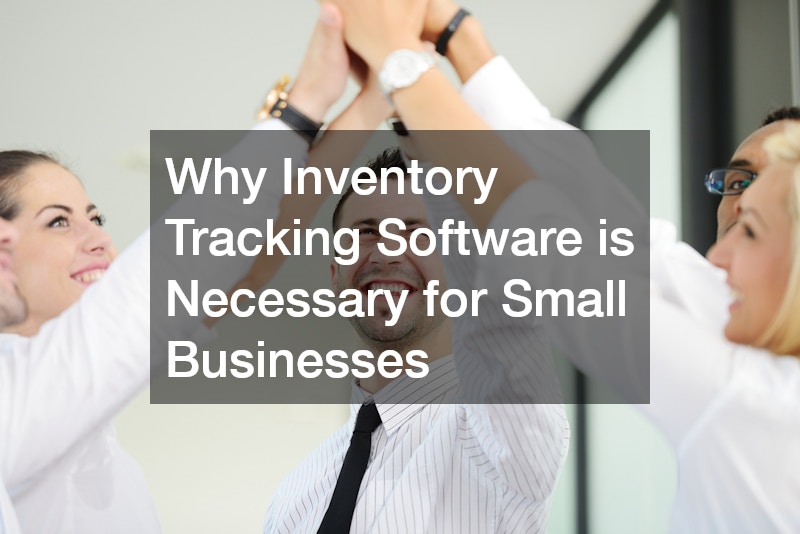In today’s fast-paced and competitive market, small businesses must leverage technology to stay ahead. Inventory tracking software is one such crucial tool. This article explores why inventory tracking software is indispensable for small businesses aiming for operational efficiency and growth.
How does inventory tracking software benefit small businesses?
Streamlined Operations
Inventory tracking software significantly enhances operational efficiency by automating various processes in inventory management. It reduces the need for manual entries, thereby minimizing human errors that can lead to issues like miscounts or lost items.
By optimizing the workflow, small businesses can save valuable time that can be redirected to other vital business activities.
With the automation of inventory tasks, small businesses can easily track product movements and inventory levels without manual labor. This ensures a seamless operation and allows business owners to focus more on strategic decisions. The software’s ability to generate real-time data helps in making informed decisions quickly.
Furthermore, the automated processes remove the burden of inventory checks, freeing staff from repetitive tasks. This enables them to channel their efforts into customer service and sales, which directly contributes to business growth. Additionally, streamlined operations often lead to an increase in employee morale, as job satisfaction rises when tedious chores are minimized.
Improved Accuracy
The use of inventory tracking software ensures precision by providing real-time updates on stock levels. This accuracy reduces the risk of stock discrepancies, which can lead to either overstock or stockouts. As such, small businesses can maintain optimal inventory levels, improving overall management effectiveness.
By leveraging advanced algorithms and data analytics, these software solutions allow small businesses to forecast demand accurately. This predictive capability assists in planning and ordering inventory, ensuring that products are available when needed. In turn, this not only satisfies customer demand but also reduces wasteful expenses on overstock items.
Additionally, inventory tracking software provides detailed insights into sales trends and consumer preferences. This data is invaluable for small businesses as it can inform strategic decisions about stocking and promotions. The improved accuracy and insights derived from such software empower businesses to better serve their customers and enhance profitability.
Cost Efficiency
One of the primary advantages of inventory tracking software for small businesses is its impact on cost efficiency. By minimizing overstock and preventing stockouts, businesses can significantly reduce carrying costs. Inventory costs greatly affect a business’s bottom line, so efficient management is crucial for sustainable growth.
With accurate inventory levels, businesses can improve order fulfillment accuracy, leading to enhanced customer satisfaction. This result often translates into better customer retention and repeat business, which are more cost-effective than acquiring new customers. Furthermore, the data-driven insights from inventory software enable strategic purchasing, ensuring capital is wisely spent.
Expense reduction is another benefit, as businesses can avoid costly emergency shipments and last-minute purchases. By aligning inventory availability with demand, companies can optimize their pricing strategies, thus improving margins. The long-term savings achieved through efficient inventory management can be reinvested into growth initiatives, supporting the business’s expansion goals.
What features should small businesses look for in inventory tracking software?

Scalability
Scalability is a critical feature that allows inventory tracking software to grow alongside a business. As small businesses expand, their inventory management needs become more complex, requiring adaptable solutions. Choosing scalable software ensures that operations remain efficient, even during periods of rapid growth.
Software that offers scalable features can accommodate increased inventory volumes without sacrificing performance. This capability is essential for businesses planning to introduce new products, enter new markets, or expand their distribution channels. Investing in scalable solutions often eliminates the need for future software transitions, saving both time and cost.
Scalable inventory tracking solutions also often include customizable features adaptable to a business’s unique needs. This means companies can select the tools most beneficial to them while paying only for necessary capabilities. In this way, scalability provides a platform for continuous improvement and operational agility.
Integration Capabilities
Integration capabilities are paramount for businesses that require seamless interactions between inventory tracking software and other platforms. Effective integration allows software to sync with e-commerce sites, accounting tools, and customer relationship management systems. This connectivity enhances data flow and reduces data silos, resulting in a unified view of business operations.
When inventory software integrates well with e-commerce platforms, businesses can automate order updates, ensuring inventory levels are always accurate across all sales channels. This not only improves inventory management but also enhances customer experience by preventing stockouts and delays. The ability to integrate with accounting software further streamlines financial tasks and ensures that inventory costs are accurately reflected in profit and loss assessments.
Integrated systems promote efficiency by eliminating redundant data entries and minimizing the risk of errors. Automated processes triggered by integrations can significantly reduce administrative burdens and improve data accuracy. For small businesses, this means more time to focus on strategic initiatives that drive growth and innovation.
User-Friendliness
For small businesses, selecting inventory tracking software with a user-friendly interface is crucial for successful implementation. An intuitive system lowers the barrier to entry, helping staff quickly learn and use the software effectively. Software that is easy to implement reduces downtime and ensures faster returns on investment.
User-friendly software often comes with tutorials, support materials, and customer service assistance, aiding smooth transitions and user adaptability. As employees familiarize themselves with the system, productivity levels rise, and operational hiccups decrease. A straightforward interface encourages frequent use of the software’s features, further optimizing inventory processes.
The ease of navigation and operation in inventory tracking solutions minimizes frustration among users, which can be especially beneficial in high-turnover industries. A positive user experience encourages continual use of the software and enhances overall efficiency. By prioritizing user-friendliness, small businesses can ensure the wide acceptance of new technological tools among all employees.
Inventory tracking software stands as a vital asset for small businesses seeking to enhance operational efficiency, ensure accuracy, and achieve cost savings. By understanding the benefits and choosing the right features, small businesses can harness the full potential of inventory tracking software to drive their success in the competitive market landscape. This strategic investment can transform inventory management, leading to improved service delivery and heightened competitive advantage.



